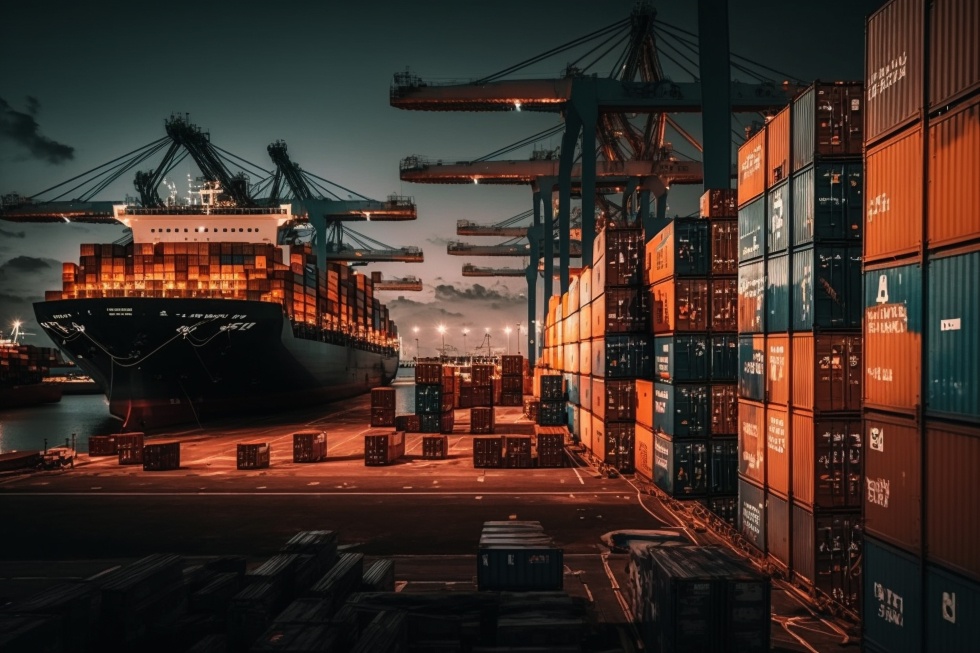Unlocking Global Success: Navigating the Trade Digitalization Era
Explore the transformative impact of trade digitalization in 2024. Discover benefits, challenges, and real-world insights for businesses aiming for global success.

In the fast-paced realm of international trade, the embrace of digitalization is not merely a choice but a strategic imperative. As we delve into the landscape of trade digitalization in 2024, businesses find themselves at a crossroads where the convergence of innovative technologies and traditional trade practices reshapes the global commerce landscape. This extensive guide aims to illuminate the current state of trade digitalization, explore the potential benefits awaiting businesses, and address the challenges that may mold the future of international trade.
Trade digitalization, a strategic integration of digital technologies into trade processes, stands as a beacon guiding businesses through a transformative era in 2024. This revolution is fueled by cutting-edge technologies, including blockchain, artificial intelligence (AI), and the Internet of Things (IoT). In this section, we'll unravel the necessity for businesses to adapt to this paradigm shift for sustained competitiveness.
Current Landscape of Trade Digitalization
The global trade ecosystem is in the throes of a significant shift towards digitalization. From supply chain management to documentation and compliance, businesses are increasingly leveraging technology to optimise their operations. This section provides a comprehensive snapshot of the prevailing digital landscape in international trade.
Key Technologies Shaping Trade digitalization:
- Blockchain: Revolutionising Transactions with Security and Transparency
- Artificial Intelligence (AI): Transforming Supply Chain Forecasting and Decision-Making
- Internet of Things (IoT): Augmenting Real-time Tracking and Monitoring Capabilities
Benefits of Trade Digitalization for Businesses
Embracing trade digitalization unfolds a myriad of advantages for businesses engaged in cross-border trade. Let's delve into these benefits to understand how they contribute to efficiency, accuracy, and overall business success.
1. Efficiency and Cost Reduction
digitalization streamlines processes, minimises manual intervention, and leads to increased operational efficiency. The resultant reduction in costs associated with time, paperwork, and errors is a significant advantage for businesses striving to stay competitive in the global arena.
2. Improved Accuracy and Transparency
The implementation of digital technologies enhances the accuracy of data handling and provides real-time visibility into supply chain activities. Improved accuracy and transparency contribute to better decision-making and risk management.
3. Enhanced Connectivity and Collaboration
In the interconnected world of trade, digitalization fosters enhanced connectivity between stakeholders. Businesses can collaborate seamlessly, creating a network that spans the entire supply chain, facilitating smoother communication and resource management.
Challenges and Considerations
While the benefits are substantial, businesses must navigate through challenges and considerations as they embark on their digitalization journey.
1. Security Concerns
Security remains a paramount concern in the digital realm. Understanding potential threats and exploring strategies to ensure the integrity and confidentiality of digital trade transactions is crucial for the sustained success of digitalization efforts.
2. Adoption Barriers
Businesses often face barriers such as initial investment costs and resistance to change when adopting digital technologies. Addressing these challenges is vital for successful digital integration, requiring a strategic approach to manage the transition effectively.
3. Regulatory and Compliance Challenges
The dynamic nature of international trade regulations poses challenges for businesses in ensuring compliance. This section sheds light on the regulatory landscape and strategies to navigate complex compliance requirements, ensuring that businesses can reap the benefits of digitalization while staying within the bounds of legal frameworks.
The Future of Trade Digitalization
Peering into the future, this section anticipates the evolution of digitalization trends and their potential impact on international trade in the coming years. From the rise of advanced AI applications to the integration of immersive technologies, businesses need to be prepared for the next wave of digital transformation, shaping a landscape where technology continues to redefine the way we conduct international trade in 2024 and beyond.
As businesses stand on the precipice of this digital frontier, those who embrace and adapt to the evolving landscape of trade digitalization are not only positioned to navigate challenges but are also poised to reap substantial benefits. The future belongs to those who harness the power of technology to redefine the way we conduct international trade in 2024 and beyond.







Comments 0